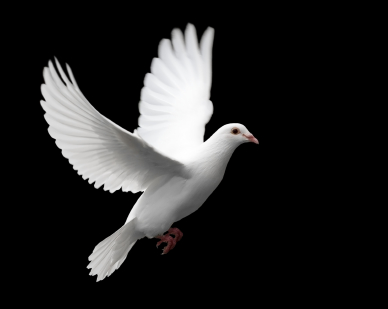God Bless the Children: Our years of writing and battling for world peace and children’s rights to peaceful upbringings are not over. However, our world exclusive this December focuses on hope and wishes for a better future for children from around the word.
20 December 2015
4,292 views
No Comment

Focus is on hope for a possible world peace for children from around the word.
“To be hopeful in an artistic sense it is not necessary to think the world is good. It is enough to believe that there is no impossibility of it being made so”. Joseph Conrad
The Bridge MAG. Image
Devoting our world editorial each December to children is a long-established tradition at The Bridge Magazine.
But this festive season, The Bridge Magazine ditches its usual angle of stories about the world’s seeming impossibility to improve itself, and the plight of children caught up in the world’s various vicissitudes.
Focus is on hope for a possible world peace for children from around the word.
Joseph Conrad, quoted by Dr James Morrison in his book entitled Journalism, The Essential of writing and Reporting. Wrote in a 1905 essay:
“To be hopeful in an artistic sense it is not necessary to think the world is good. It is enough to believe that there is no impossibility of it being made so”.
Dr Morrison is a former Senior Lecturer in Journalism at Kingston University in London, and has just landed a new role as a Reader in Journalism at Robert Gordon University of Aberdeen in Scotland.
Joseph Conrad (born Józef Teodor Konrad Korzeniowski; 1857–1924) himself was a Polish-British writer regarded as one of the greatest novelists to write in the English language –no mean feat considering that English was his third language (after Polish and French). Many films have been adapted from, or inspired by, Conrad’s works, not least the famous Apocalypse Now (1979), which was broadly based on Conrad’s novella Heart of Darkness (1899).
Hope is a powerful weapon in many ways: hope and optimism give us something to hold onto whilst battling for a better future.
Below are a few reasons why it is important to be hopeful.
Nothing can stop someone who has lost all hope: as he or she no longer has any fear of consequences. He may commit the most evil crimes and can become the most dangerous person in the world.
Hopelessness is a feeling that conditions will never improve, that there is no solution to a problem, and for many, a feeling that dying by suicide would be better than living.
Whereas hope or optimism is a highly important feature of human life associated with rationality and, in some cases, irrationality.
Hope is an optimistic attitude of mind based on an expectation of positive outcomes related to events and circumstances in one’s life or the world at large.
According to Barbara Lee Fredrickson, a Distinguished American Professor of Psychology at the University of North Carolina, positive people are able to maintain a wider perspective and see the big picture which enables them to identify solutions and thrive; whereas negative people maintain a narrower perspective and tend to focus on problems.

Hope and optimism give us something to hold onto whilst battling for a better future.
At this festive time of year, The Bridge Magazine wishes peace of the season and beauty of the Yuletide to children in the UK and from around the world.
The Bridge MAG. Image
Even if the globe is swamped with wars, crimes, mourning, sorrow and vicissitudes of all sorts, even if children’s rights to peaceful upbringings seem increasingly jeopardised, we should work hard and hope for a better future for our offspring.
Christmas is associated with the events surrounding Jesus’ birth –a fulfilment of the Old Testament messianic prophecy. However, the day is also equally associated with family festivities and, in particular, with children. There is arguably no better time, therefore, to hope for a better future for children in the UK and from around the world.
If “world peace” sounds like a fantasy, hoping to achieve peace one day is a big step toward making it become real.
The countdown to Christmas 2015 is ticking. At this festive time of year, The Bridge Magazine wishes peace of the season and beauty of the Yuletide to children in the UK and from around the world.

